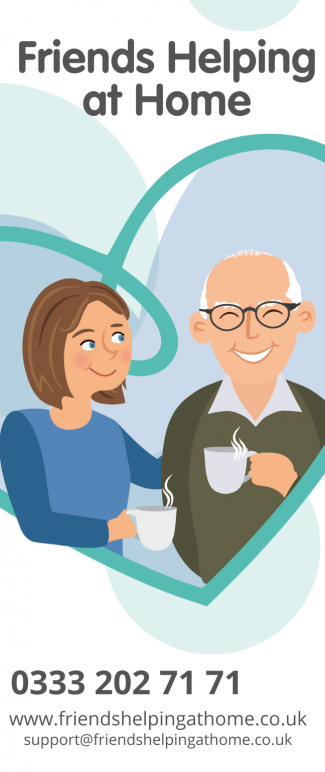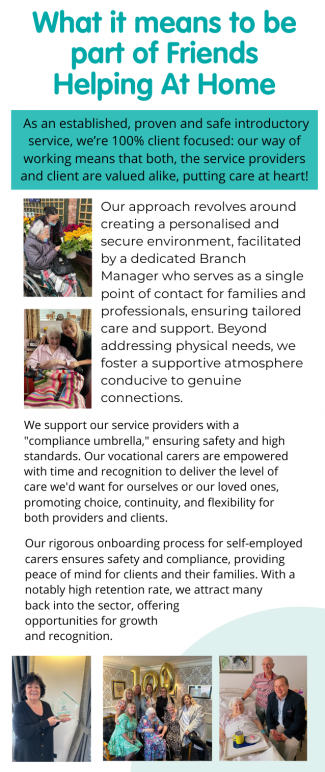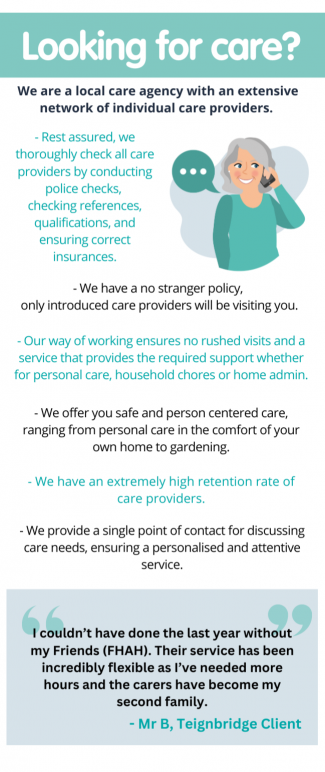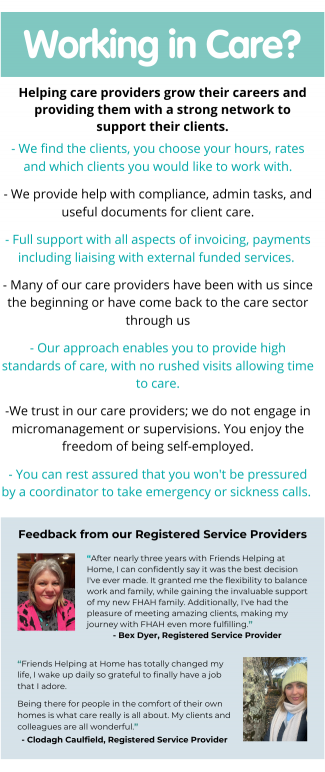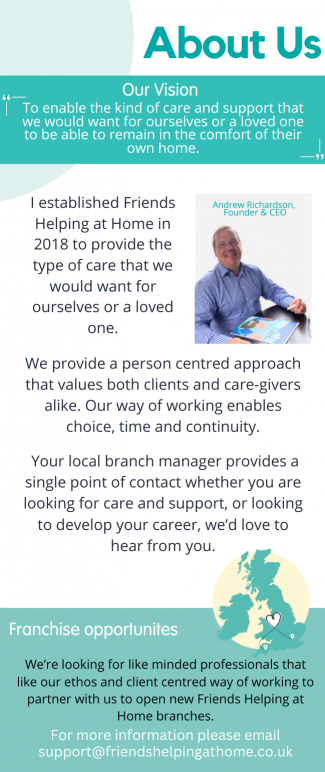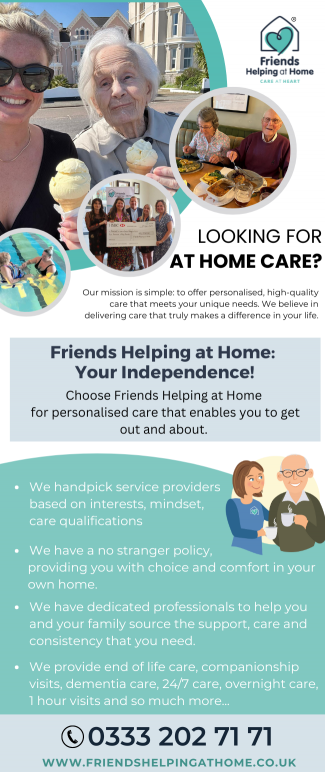Our Story
We opened our first branch in 2018 and believe that our continued success and sustainability has been due to living our vision and values: enabling care to be provided in the way that we would want for ourselves or a loved one to be able to remain living well in the comfort of your own home. Our first branch covered the Torbay area with Karen Breyley, our first Branch Director, providing the services we continue offer today, with everyone having a single point of contact and personal approach for every client to be able to discuss their requirements in the comfort of their own home and to be introduced to suitable service providers – carers and enablers, with a no stranger policy, continuity of service and flexibility to change as needs change. It’s a brand standard that every visit is always made on time and only with a familiar face.


Karen thinks that success is due to not being pushy or salesy, but having the time to listen and understand what our clients need. The business has predominantly grown by word of mouth. We genuinely recognise that our service providers who are mostly professional carers or enablers are key to our success. Many have been with us since day one and we have an unbelievably high retention rate. Our way of working means that our clients have great value for money as well as our service providers earn significantly more. This is consistent throughout our network. Karen says, “ Without the need for rushed visits and providing a single point of contact for every client and service provider, we are able to deliver and exceed expectations.”
Our head office team has grown with the various skills and specialisms to support and sustain a growing network. Whilst our vision is clear and simple: based on our ethos is always client and service provider focused, we are able to maintain this having made a significant investment in people and bespoke systems that enable a safety and due diligence in finding care and support in at-home care.
Growth is steady and sustainable as we are keen to attract the right people into our network, where there’s a mutual fit and love of our vision, whether: carers, enablers or prospective business partners thinking about opening a branch in their area, just like Karen. Since launching Torbay we have added another seven franchised branches that cover Devon. We’ve recently launched in Portishead, Nr Bristol covering the North Somerset areas with more in the pipeline.
The Friends Helping at Home approach is very much about being part of and supporting local communities. Our fabulous branch owners and service providers raise thousands each year. What ever it is, the humble coffee morning, sponsored walk, arranging a charity ball we love getting together in aid of good causes. [The link] see some of the Community Events and Spring Ball, that we have enjoyed supporting or initiating!
There’s always lots of serious stuff going on behind the scenes to support our growing network. We love what we do, putting “Care at Heart” and would love to hear from you if you’d like to find out more or be part of Our Story.

